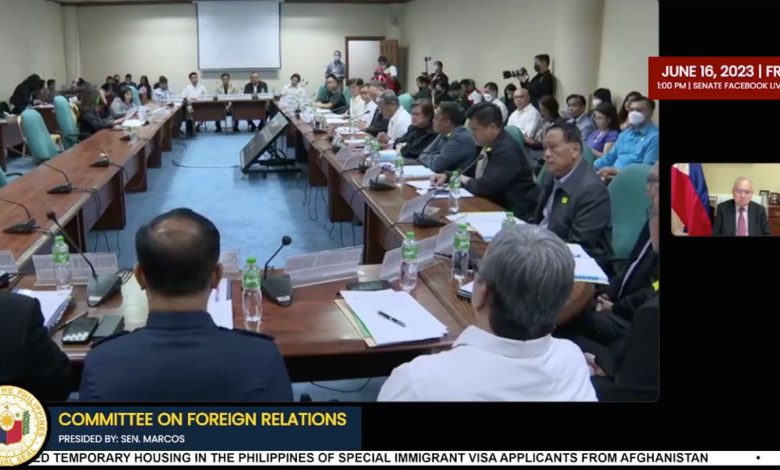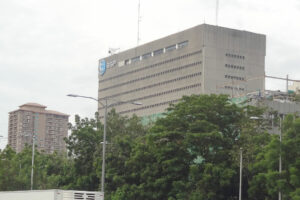Hosting Afghans in transit to US not a security threat to PHL — analysts

By Beatriz Marie D. Cruz, Reporter
A REQUEST from the American government for the Philippines to host Afghan nationals while their US immigration applications are being processed should not be seen as a security threat but as a humanitarian act by a country that prides itself in its hospitality, analysts said on Sunday.
Chester B. Cabalza, founder of the Manila-based International Development and Security Cooperation, said “receiving Afghans as a host country for their Special Immigrant Visas should not be construed as tall order from the Americans,” noting that the Philippines is a treaty ally of the US.
“As part of the international community, we help other nationalities in distress as long as they will not become a threat to national security,” he said via Messenger chat.
“It will not become a threat as long as we take control of the situation and enforce our own laws on them. We have done the same thing with the Chinese, Israelites and Vietnamese before in their diasporic struggles.”
Hansley A. Juliano, a political economy researcher studying at Japan’s Nagoya University’s Graduate School of International Development in Japan, said, “The Philippines is actually already a bit late on hopping on this, especially as many other countries with closer ties to pre-fall Afghanistan has facilitated supporting the migration and asylum of Afghan refugees.”
“However, we do need to be very transparent about how this is being done,” Mr. Juliano said in a separate Messenger chat.
Philippine Foreign Affairs Secretary Enrique A. Manalo, speaking at a Senate hearing on Friday, said they received the request from the US in October last year.
“We received in a concept note from the US government [containing] a request for the Philippines to allow Afghans formerly employed by the US government and their qualified dependents to temporarily stay in the Philippines to process their SIV (Special Immigrant Visa) applications with the US embassy in Manila,” he said.
Mr. Manalo said the Afghans will be traveling with valid passports and undergo “rigorous security vetting and background checks.”
All costs will be shouldered by the US government.
The Philippine government will set mobility and other restrictions for the transients as well as the schedule of arrivals in batches.
US Ambassador to the Philippines Jose Manuel G. Romualdez told senators that up to 60,000 Afghans are applying for an SIV and that the US is proposing to send up to 1,500 per batch to the Philippines.
The Afghans are either still in their homeland while some are already in neighboring Pakistan, Mr. Romualdez noted.
WORKERSIn 2021, the US withdrew its troops from Afghanistan after a 20-year presence leading an international military coalition that kept the ulta-conservative Taliban at bay.
After the international forces and diplomatic missions left, the Taliban immediately returned to power, putting at risk the lives of Afghans employed under the US and other foreign governments and organizations.
“Receiving refugees as a humanitarian accommodation is innate in the Philippines and with Filipinos… as part of the international community,” Mr. Cabalza said.
A labor group on Sunday also urged the Philippine government to agree to temporarily take in Afghan nationals, citing reports of human rights violations against workers in the Central Asian country.
“The Federation of Free Workers (FFW) remains alarmed by reports of rampant human rights abuses, including infringements on women’s rights, persecution of religious and ethnic minorities, and arbitrary detention of activists and journalists,” it said in a statement.
“As the situation unfolds, the FFW continues to extend its solidarity to Afghan workers who are facing challenges in their fight for equality of employment and occupation under International Labor Organization (ILO) Convention 111.”
Under the ILO Convention, all human beings, regardless of race, creed, or gender, have the right to “pursue material well-being and spiritual development in conditions of freedom and dignity of economic security and equal opportunity.”
“Despite the opposition of Vice President Sara Duterte-Carpio and other government officials, the FFW has consistently expressed deep concern over the deteriorating humanitarian crisis in Afghanistan,” it said.
Security expert Rommel C. Banlaoi said the government should not rush into agreement and must do “further assessment if accepting them will serve our national interests.”
During the Senate hearing, Defense Secretary Gilbert C. Teodoro clarified that the Afghans should not be classified as refugees.
“Basically, they’re not displaced. They’re in their homeland right now. They have not applied for political asylum or any other thing.”
Mr. Teodoro said that the Afghans will only be considered refugees if their visas are denied and they are not repatriated.
Ms. Duterte-Carpio has opposed the proposal, citing threats to security and sovereignty.
Education Undersecretary Michael Wesley Poa quoted a position paper signed by Ms. Duterte-Carpio, saying, “It seems that the vetting process may be done by the US. We think it is interference to our exclusive determination of who can enter into our country.”
Mr. Juliano said equating the entry of foreign nationals to human security issues is dangerous, as it may create xenophobic or anti-immigration sentiments among Filipinos — themselves a people of migrants.
“This same framing has been the bad faith talking points of rightwing and racist parties throughout Europe and North America,” he said.
The US embassy has not replied to an e-mail seeking comment. — with John Victor D. Ordoñez




